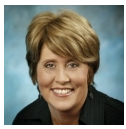Guest blog by Bev Foster
A lot of life happens in rooms and so does a lot of death. One room I will always remember is Room 217, where my mom, five siblings, and I sang around dad’s bedside as he was dying in a hospital northeast of Toronto. Whether it was the lingering words, simple melodies, or our faltering voices, what was undeniable was the calming and soothing impact of our music on dad in this sacred space.
Music had been my way of connecting with dad in life, and it became my way of supporting him at poignant moments during the course of his illness. This final experience in Room 217 compelled me to ask some deeper questions. Why was music never offered to dad, live or recorded at the hospital? What did other families do while they waited and held vigil? Did they use music? Would they use music if it was designed for palliative care? Are there especially designed music resources for to accompany families in life threatening or complex care circumstances?
The answers to those questions led me to create the Room 217 Foundation in 2009. Our mission is care through music. We do this in three ways:
- Producing research-informed, and artistically excellent music care resources targeted for specific situations and populations. These resources are ready and easy to use.
- Providing music care education for caregivers who want to learn how to integrate music into their regular care practice through the annual Music Care Conference, the Music Care Certificate Program, free monthly music care webinars, and workshops.
- Collaborating on research that optimizes or advances music care in healthcare or enhances understanding of attitudes and perceptions of music in care.
I am grateful for the impact Room 217 has had in such a short time. Reportedly, our designed music has made a difference for thousands of people. For example, our supportive care music collections assist at end of life by reducing agitation, promoting sleep, regulate breathing, distraction for pain, help for release, closure and comfort. Pathways provides a meaningful music-making activity for those living with dementia and enhances engagement, conversations and responsiveness, reduces behaviours and strengthens relationships. We know that from our music care education initiatives, caregivers are more informed and confident to incorporate music into daily care routines. And we are pleased that the 10 Domains of Music Care taxonomy, designed by Room 217, is being used by healthcare facilities for music navigation and optimization.
The take-away from the Room 217 story is this: be present to what is happening in rooms full of life or death. And if you are moved, then act to make a difference.
For more information about the Room 217 Foundation, visit www.room217.ca
Bev Foster – speaker, teacher and performer – is the founder and Executive Director of Room 217 Foundation.
Suggested reading: Amy Clements Cortes: Healing power of music

